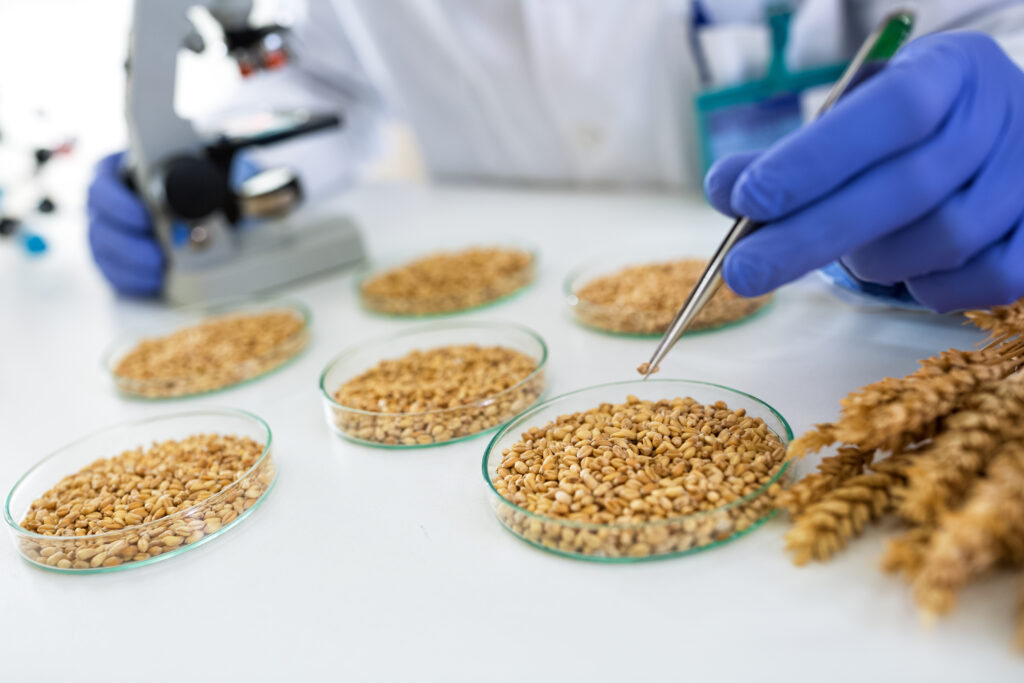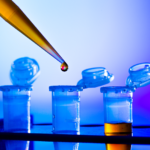As European consumers become more aware of where their food comes from and how it is made, the interest in sustainable, healthy, and animal-friendly labels grows. And although GMOs are allowed in the EU to be used in animal feed, we see a trend in products that are produced without GMOs. In Germany for example, the share of non-GMO milk has already reached almost 80% (78.4%).
Non-GMO labelling
Farmers who produce GMO-free milk, eggs, or meat for certain markets, or according to specific requirements from buyers such as dairy processor Arla or German retailers Lidl and Aldi, must comply to certain non-GMO requirements. Only then the end products can be labelled as non-GMO. Non-GMO labelling is allowed in many European countries (including Germany, Austria, France, Slovenia, and Switzerland), while others still prohibit this type of labelling. At the same time, there are also efforts to introduce a uniform and harmonised EU-wide non-GMO labelling system.
Non-GMO products must come from animals that were raised with non-GMO feed. To guarantee this, the farm and feed producer must comply with non-GMO standards, including regular testing of the feed materials. Over the years, the number of certification (and associated labels) across Europe has increased. Austria was the first country in Europe to facilitate non-GMO production (1997), followed by Germany (2010) with the well-known VLOG (‘Verband Lebensmittel Ohne Gentechnik’) standards and associated label. The Slovenian IKC Inštitut za kontrolo in certifikacijo UM registered and implemented a private non-GMO certification in Slovenia in 2011. In total, 10 European countries currently allow non-GMO labelling.
FoodChain ID: partner for feed companies
GMO analysis of feed is needed to comply to the certification scheme used and to verify compliance to labelling thresholds especially in dual feed production facilities.. FoodChain ID offers a full range of accredited qualitative and quantitative testing methods for all commercialized GMO crops. In addition, an international network of ISO 17025 accredited testing labs enables FoodChain ID to detect, identify and quantify GMOs according to the customer needs and location.
Konstantin Rizos, Technical Director Testing at FoodChain ID Testing GmbH explains: “Our expertise and years of experience enable us to include country and standard specific requirements for the design of custom-tailored, cost-effective testing strategies serving the feed industry. A close contact with our customers and explaining complex test results in an easy-to-understand manner are an essential and integral part of our service. Our aim is to support our clients meeting Non-GMO requirements with our services.”
Growing market share in feed
With a strong background in the food industry and offices and labs in the Benelux, France, and Germany, FoodChain ID is growing its presence and visibility as a trusted partner for feed companies in Europe. This has been propelled by the acquisition of Promag in 2022. With combined experience of over 35 years, we are becoming a key player in the animal nutrition and farming sector in Belgium and France. “This allows us to spread our know-how around GMO compliance to more European feed companies and hence help them to meet today’s consumer and feed challenges”, Rizos concludes. FoodChain ID: Expertise You Need. Service You Can Rely On. Learn more about our GMO testing here.






